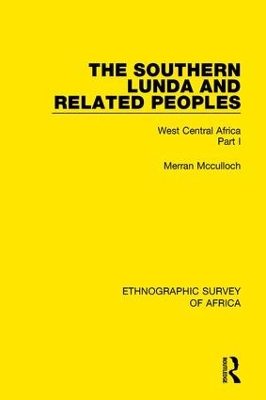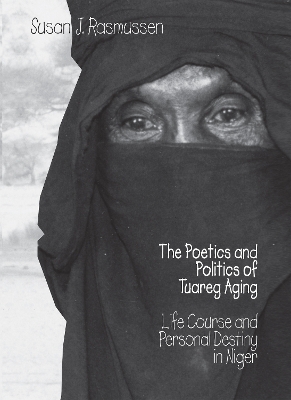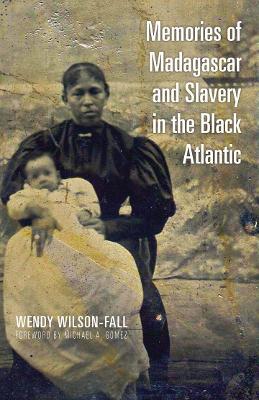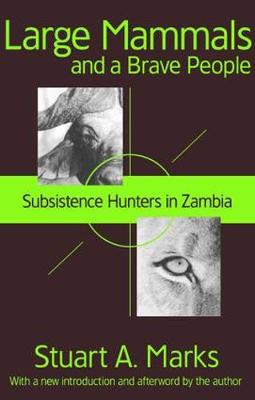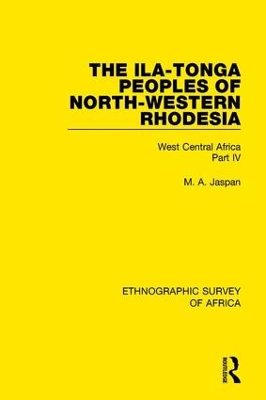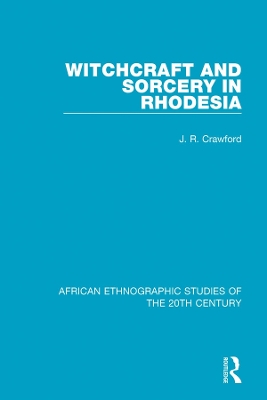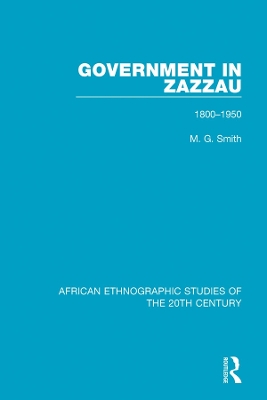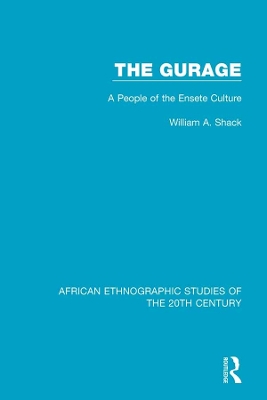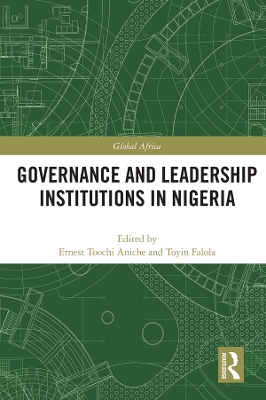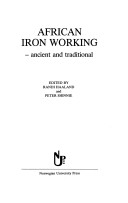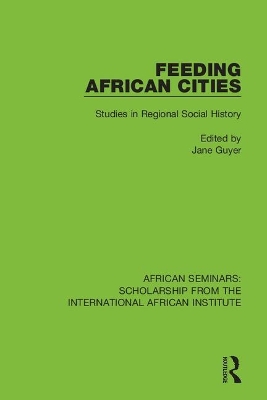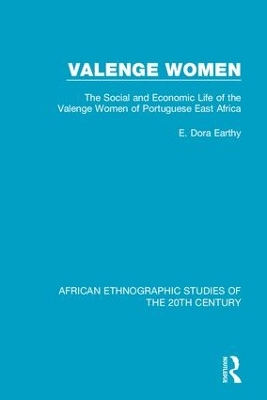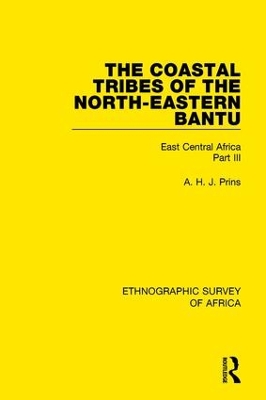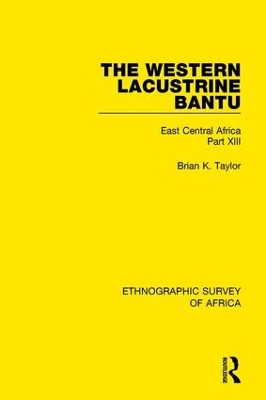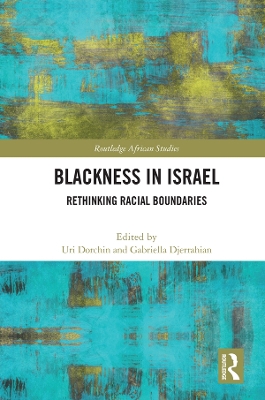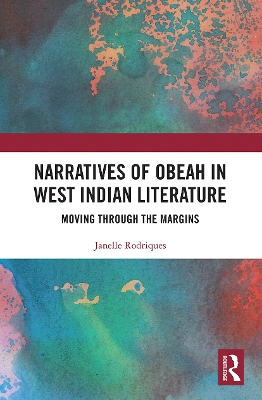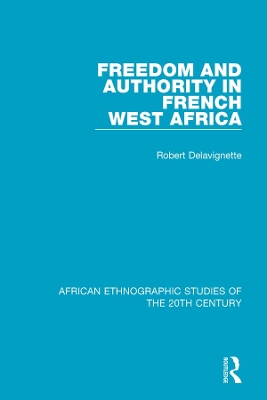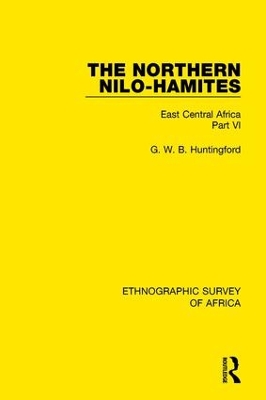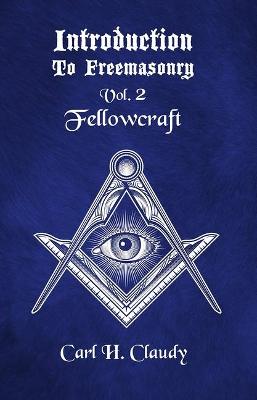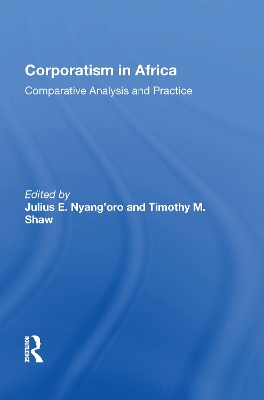The Southern Lunda and Related Peoples (Northern Rhodesia, Belgian Congo, Angola)
by Merran McCulloch
Routledge is proud to be re-issuing this landmark series in association with the International African Institute. The series, published between 1950 and 1977, brings together a wealth of previously un-co-ordinated material on the ethnic groupings and social conditions of African peoples. Concise, critical and (for its time) accurate, the Ethnographic Survey contains sections as follows: Physical Environment Linguistic Data Demography History & Traditions of Origin Nomenclature Grouping...
To what degree does culture influence our concepts of age and aging? In our own culture, chronology is crucial to perceptions of the aging process. Our expectations for a twenty-year-old, for example, are different from those we have for a sixty-year-old. So entrenched are our ideas about aging that the notion of measuring age in ways other than chronology may be startling. In this unique ethnographical study of the people of the Kel Ewey confederation of Tuareg, Rasmussen explores age and aging...
Memories of Madagascar and Slavery in the Black Atlantic (Research in International Studies, Global and Comparative Studies)
by Wendy Wilson-Fall
From the seventeenth century into the nineteenth, thousands of Madagascar’s people were brought to American ports as slaves. In Memories of Madagascar and Slavery in the Black Atlantic, Wendy Wilson-Fall shows that the descendants of these Malagasy slaves in the United States maintained an ethnic identity in ways that those from the areas more commonly feeding the Atlantic slave trade did not. Generations later, hundreds, if not thousands, of African Americans maintain strong identities as Malag...
The Valley Bisa people inhabit the Luangwa Valley in central Zambia. Among them, the hunter, who tracks such large game as the lion, elephant, and buffalo, commands great respect and esteem from the other members of the lineage who traditionally rely on him for their subsistence and protection. Although the social organization and technology of the Bisa people have undergone tremendous change in the last one hundred years, the role of hunter retains its social importance, and the legitimizing hu...
Routledge is proud to be re-issuing this landmark series in association with the International African Institute. The series, published between 1950 and 1977, brings together a wealth of previously un-co-ordinated material on the ethnic groupings and social conditions of African peoples. Concise, critical and (for its time) accurate, the Ethnographic Survey contains sections as follows: Physical Environment Linguistic Data Demography History & Traditions of Origin Nomenclature Grouping...
Witchcraft and Sorcery in Rhodesia (International African Institute S.)
by J R Crawford
Originally published in 1967, this book is a study of witchcraft and sorcery among the Shona, Ndebele and Kalanga peoples of Zimbabwe. It analyses in their social context verbatim evidence and confessions from a comprehensive series of judicial records. It provides the first systematic demonstration of the importance and the exstent to which such sources can be used to make a detailed analysis of the character and range of beliefs and motives. The main emphasis is on witchcraft and sorcery belie...
Originally published in 1960, this is a details study of the successive forms of government in the Hausa chiefdom of Zaria in Northern Nigeria. It presents a comparative analysis of the political organization and development of Zaria under successive Habe, Fulani and British suzerains. The book tackles the problems of political history and theory from an anthropological point of view, distinguishing governmental forms, functions and modes, as well as elucidating necessary regularities within the...
Originally published in 1966 this study gives a detailed account of all aspects of Gurage life. An introductory chapter on South-West Ethiopia and the history of the area is followed by descriptions of Gurage settlements, ensete (banana-like plants) cultivation, kinship and marriage, the political system and religious organization. The author's fieldwork and discussions with many resident and migrant Gurage in Addis Ababa enabled him to provide a valuable account of a hitherto little known peopl...
Governance and Leadership Institutions in Nigeria (Global Africa)
This book examines how modern Nigerian political institutions have grappled with the resurgence of traditional institutions of political leadership in the post-colonial era. The contributors examine the role and nature of traditional governance institutions in West Africa from pre-colonial times to the post-colonial era. Part I considers a range of traditional institutions including monarchies, Islamic institutions and the role of culture and arts such as masking and music in traditional leade...
African Iron Working
First published in 1971, this major bibliography devoted to Africa's most populous country - Nigeria - is therefore a timely contribution which must be welcomed by all. The Bibliography of Nigeria contains over 5,400 entries in archaeology, all branches of anthropology, linguistic and relevant historical and sociological studies. Many of the entries carry indicative or informative annotations which have greatly enhanced the usefulness of the work. The history and culture of Africa constitutes a...
Feeding African Cities (African Seminars: Scholarship from the International African Institute)
Originally published in 1987, this book traces the broad outlines of urban food policy, drawing attention to the limited knowledge of regional social history. Urban food supply systems in Africa have developed very fast, in the midst of societies in which food production was not in general oriented to feeding distant populations of 'specialist consumers'. Institutional and political links had to be forged between town and country if food supply was to be cheap and predictable. This volume explor...
When first published in 1933, this monograph shed new light on the life of the Valenge women of Portuguese East Africa. It discusses their social organisations, family relationships, education, tribal customs, and contains detailed information concerning initiation rites, religion, magic and sorcery. The volume collects a large number of native texts, rituals and formulae, thereby converting oral tradition into material of great value not only to students of Africcan ethnography but also to anth...
The Coastal Tribes of the North-Eastern Bantu (Pokomo, Nyika, Teita)
by A. H. J. Prins
Routledge is proud to be re-issuing this landmark series in association with the International African Institute. The series, published between 1950 and 1977, brings together a wealth of previously un-co-ordinated material on the ethnic groupings and social conditions of African peoples. Concise, critical and (for its time) accurate, the Ethnographic Survey contains sections as follows: Physical Environment Linguistic Data Demography History & Traditions of Origin Nomenclature Grouping...
Routledge is proud to be re-issuing this landmark series in association with the International African Institute. The series, published between 1950 and 1977, brings together a wealth of previously un-co-ordinated material on the ethnic groupings and social conditions of African peoples. Concise, critical and (for its time) accurate, the Ethnographic Survey contains sections as follows: Physical Environment Linguistic Data Demography History & Traditions of Origin Nomenclature Grouping...
Blackness in Israel (Routledge African Studies)
This book explores contemporary inflections of blackness in Israel and foreground them in the historical geographies of Europe, the Middle East, and North America. The contributors engage with expressions and appropriations of modern forms of blackness for boundary-making, boundary-breaking, and boundary-re-making in contemporary Israel, underscoring the deep historical roots of contemporary understandings of race, blackness, and Jewishness. Allowing a new perspective on the sociology of Israel...
This book explores representations of Obeah - a name used in the English/Creole-speaking Caribbean to describe various African-derived, syncretic Caribbean religious practices - across a range of prose fictions published in the twentieth century by West Indian authors. In the Caribbean and its diasporas, Obeah often manifests in the casting of spells, the administration of baths and potions of various oils, herbs, roots and powders, and sometimes spirit possession, for the purposes of protect...
Economic Policy Options for a Prosperous Nigeria
For three decades Nigeria missed its opportunities to use oil wealth for economic transformation. Since 2003 there have been remarkable efforts to reform economic policies across a wide range. The challenge is enormous and the process of reform will need to continue for many years. The design of policy reform must rest on a firm basis of evidence and analysis. This book demonstrates that there is already sufficient evidence on the Nigerian economy and society to inform many policy issues. Under...
Originally published in 1950 and updated in 1968, this book discusses the functions and status of native chiefs in what were the French colonies in West Africa. It also examines the relation of the French legal code to native law and custom and the activities of Christian missions. Analysing changes which took place in the early 20th century as a result of Africa's entry into the world economy, the book includes proposals for increasing agricultural production and co-operative marketing.
Routledge is proud to be re-issuing this landmark series in association with the International African Institute. The series, originally published between 1950 and 1977, collected ethnographic information on the peoples of Africa, using all available sources: archives, memoirs and reports as well as anthropological research which, in 1945, had only just begun. Concise, critical and (for its time) accurate, the Ethnographic Survey contains sections as follows: Physical Environment Linguistic...
Corporatism In Africa
This book presents a collection of case studies that make apparent that African corporatism is comparable yet in contrast to corporatism elsewhere. The collection also demonstrates the variation in corporatist practice and success among African countries. .
